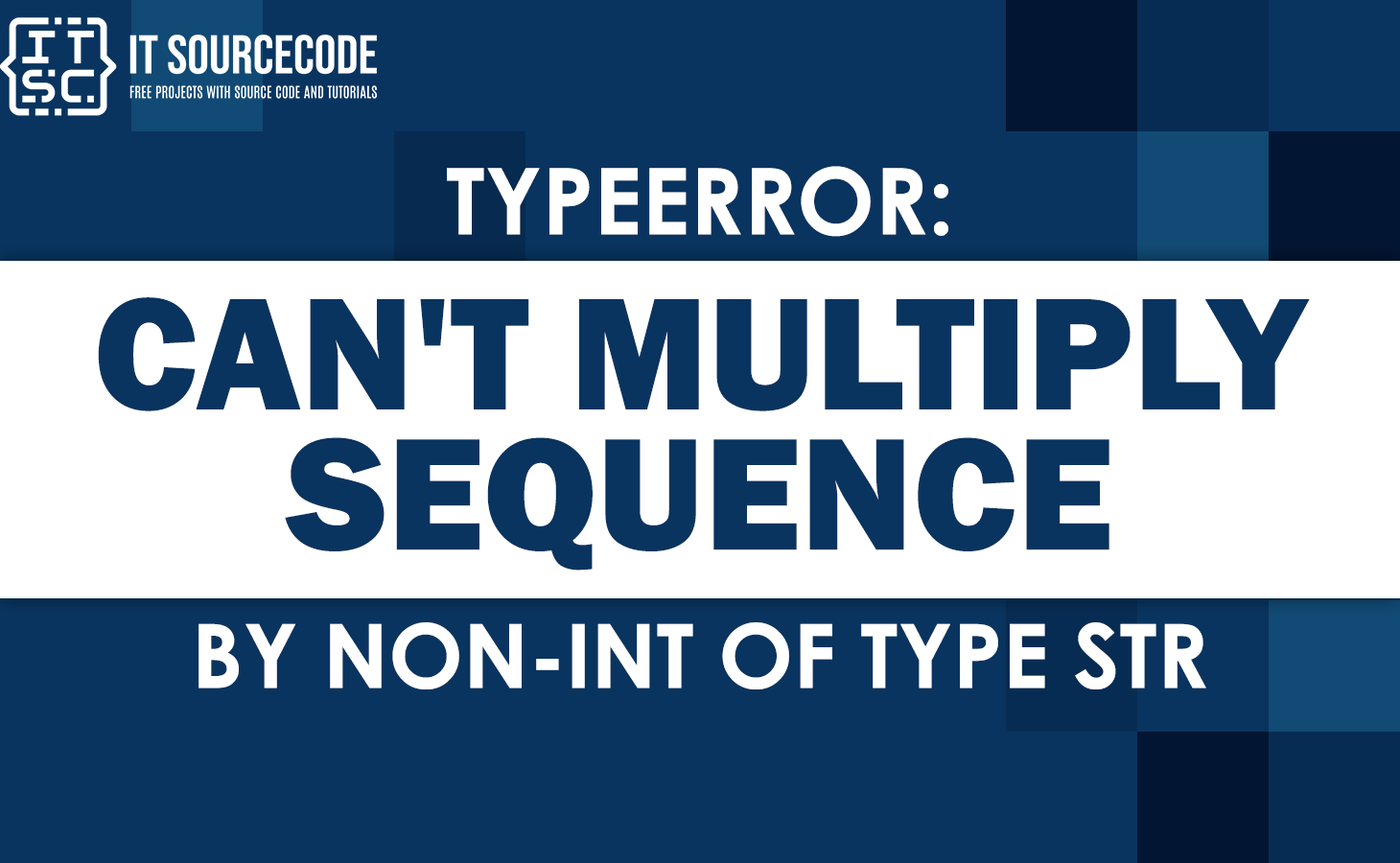Having difficulties fixing “Typeerror: can’t multiply sequence by non-int of type str”?
Worry no more! because this article is for you
In this article, we will discuss “Typeerror: can’t multiply sequence by non-int of type str”, provide the possible causes of this error, and give solutions to resolve the error.
So first, let us know what this error means.
What is “Typeerror: can’t multiply sequence by non-int of type str”?
This error message indicates that you trying to multiply a sequence (such as a string or list) by a non-integer value (such as another string).
Here is an example that would generate this error:
my_list = [1, 2, 3]
result = my_list * "2"
print(result)In this example, we are trying to multiply the my_list sequence by the string “2”.
However, this is not possible because “2” is a non-integer value.
As a result, Python will raise an error with the message:
TypeError: can't multiply sequence by non-int of type 'str'Now let us know the reasons why this error occurs.
How “Typeerror: can’t multiply sequence by non-int of type str” occurs?
This error occurs because the * operator in Python is used for multiplication and it only works with numeric values.
When you try to use the * operator with a sequence and a non-integer value, Python raises a TypeError;
Here are the other reasons why Typeerror: can’t multiply sequence by non-int of type str occurs:
Cause 1: Mismatched data types:
If you try to multiply a sequence by a non-integer value that does not match the data type of the sequence.
For example, trying to multiply a string by a list or vice versa.
my_string = "Hello"
my_list = [1, 2, 3]
result = my_string * my_listIn this example, we are trying to multiply a string by a list.
This will raise an error indicating:
TypeError: can't multiply sequence by non-int of type 'list'because the * operator only works with numeric values.
Cause 2: Data Input Error:
If your input data is not what you expect it to be, this error may occur.
For example, if you are expecting an integer value but receive a string instead.
Here is an example code snippet:
my_string = "2"
my_number = "3"
result = my_string * my_number
print(result)In this example, we are trying to multiply a string variable my_string by another string variable my_number.
This will raise a TypeError.
Cause 3: Logic error:
If you have a logic error in your code, you may try to perform a multiplication operation that is not valid.
For example, trying to multiply a list of strings by an integer value.
Here’s an example:
my_list = ["a", "b", "c"]
my_number = 2
result = my_list * my_number
print(result)In this example, we are trying to multiply a list of strings by an integer value.
Cause 4: Syntax error:
Sometimes, this error occurs due to a syntax error in your code.
For Example
my_string = "Hello"
my_number = 2
result = my_string *2In this example, we accidentally forgot to put a space between the string variable my_string and the integer value 2.
This will cause a syntax error and raise a TypeError.
Now let us know the possible solutions that we can use to fix this error.
Typeerror: can’t multiply sequence by non-int of type str – Solutions
Here are the alternative solutions that you can use to fix the “can’t multiply sequence by non-int of type str” error:
Solution 1: You need to make sure you are only using the * operator with numeric values.
If you need to concatenate a string multiple times, you can use the * operator with an integer value instead.
Here is an example:
my_string = "Hello"
my_number = 2
result = my_string * my_number
print(result)In this example, we are multiplying the string variable my_string by an integer value my_number instead of a list.
Output
HelloHelloSolution 2: You need to make sure that your input data matches the expected data type.
In this case, you need to convert the string variable to an integer.
For Example
my_string = "2"
my_number = 3
result = int(my_string) * my_number
print(result)In this example, we convert the string variable my_string to an integer using the int() function.
Expected Output:
6Solution 3: You need to modify your code to only use the * operator with numeric values.
If you need to repeat the elements of a list, you can use a loop instead.
Here is example code:
my_list = ["a", "b", "c"]
my_number = 2
result = [element for element in my_list for _ in range(my_number)]
print(result)In this example, we use a loop to repeat each element in the list my_list my_number times.
Output
['a', 'a', 'b', 'b', 'c', 'c']Solution 4: You just need to correct the syntax in your code.
These solutions will fix the “TypeError: can’t multiply sequence by non-int of type str” error and ensure that your code works correctly.
Here are the other fixed Python errors that you can visit, you might encounter them in the future.
- Attributeerror module tensorflow compat v1 has no attribute contrib
- Attributeerror: module ‘collections’ has no attribute ‘iterable’
- Attributeerror module has no attribute
Conclusion
In conclusion, in this article we discuss “Typeerror: can’t multiply sequence by non-int of type str”, and its causes and provide solutions that resolve the error.
By following the given solution, surely you can fix the error quickly and proceed to your coding project again.
I hope this article helps you to solve your problem regarding a TypeError stating “can’t multiply sequence by non-int of type str”.
We’re happy to help you.
Happy coding! Have a Good day and God bless.

